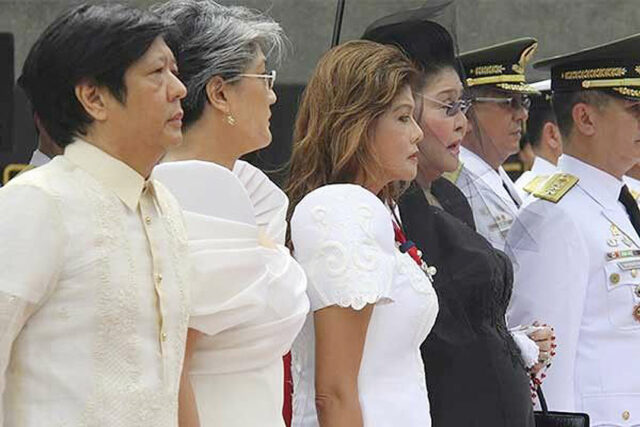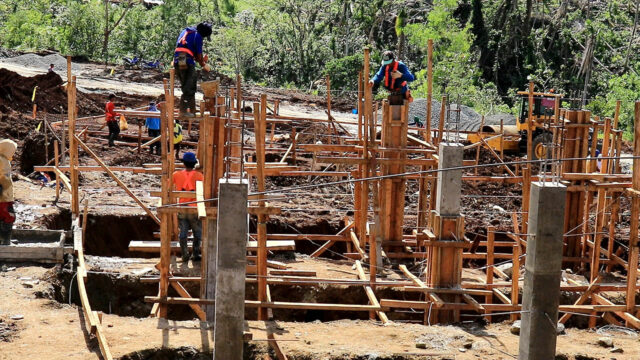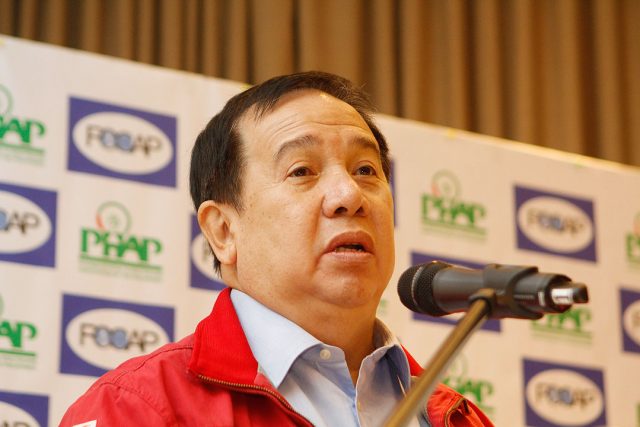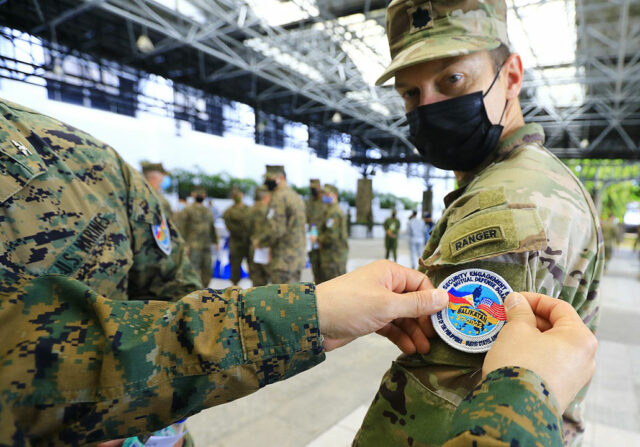A second paragraph was introduced under Section 170 of the Revised Corporation Code (RCC) providing that “Liability for any of the foregoing offenses shall be separate from any other administrative, civil, or criminal liability under this Code and other laws.” It clearly expresses the Legislative intent that any conviction under Section 170 for violations of the provisions of the Code not specifically penalized therein shall be without prejudice to the imposition of administrative sanctions by the Securities and Exchange Commission (SEC) pursuant to Section 158 of the Code, or to “any other … civil, or criminal liability under this Code and other laws.”
It is would be reasonable to assume that the legislative intent in adding the last paragraph in Section 170 was to avoid application of the Ient doctrine from the main phrase “Violations of any of the other provisions of this Code … not otherwise specifically penalized therein” that when the Code provides for the imposition of an administrative sanction or civil liability (e.g., the provision of Section 30 of the RCC that imposes solidary liability to a director or trustees who violates his duty of diligence), that constitutes a violation that is already penalized, and no longer can be criminally sanctioned under Section 170 of the Code. Such a legislative attempt is faulty, for the following reasons:
Firstly, the part of the clause that provides that liability under Section 170 shall be separate from “any other … criminal liability under this Code,” contradicts very essence of the criminal offense sought to be punished under the main provision of Section 170, which is to impose criminal penalty for any violation of the Code which is not “specifically [criminally] penalized therein (i.e., the RCC).” Therefore, if the Code already provides a “criminal liability” for an offense, how can it still be separately punished under Section 170 thereof?
Secondly, it is difficult to construe that the last paragraph of Section 170 can overcome previous sections where the Code itself limits the imposition of administrative sanctions for violation of a particular provision as to make it fall within the main provision of Section 170.
To illustrate, as Section 27 provides that SEC’s removal of a disqualified director or trustee “shall be without prejudice to other sanctions that the [SEC] may impose on the board of directors or trustees who, with knowledge of the disqualification, failed to remove such director or trustee,” we doubt whether the members of the board may still be criminally penalized under the broad provisions of Section 170 of the RCC.
Since Section 73 provides that “Any stockholder who shall abuse the rights granted under this section shall be penalized under Section 158 of this Code, without prejudice to the provisions of” the Intellectual Property Code and the Data Privacy Act, we doubt whether a shareholder or member who abuses his right of inspection and/or reproduction of corporate records could be held liable under the broad provisions of Section 170 of the RCC, since Section 73 embodies by its language a clear legislative intent to limit the sanctions to those provided therein. In any event, the very description of “abuse of the rights of inspection and/or reproduction of corporate records” is overly broad as not to define a definite criminal offense.
Finally, it is unfortunate that such legislative intent was expressed under Section 170 of the RCC, and not provided its own section as to encompass the whole criminal penalty system of Code. This unfortunate construction can be appreciated from the fact that since the provision appear as the last paragraph under Section 170 defining “Other Violations of the [Revised Corporation] Code,” it may be construed to mean that when it comes to violations which are specifically punished by the RCC, no administrative sanction may be imposed, unless the particular penalizing provision allows the imposition thereof separate and apart from the criminal penalties imposed.
OVERLY BROAD LANGUAGE
Section 170’s language remains vague, if not overly broad, as amounting to denial of due process.
It can never be over-emphasized that the essential language of the Section 144 of the old Corporation Code has been carried over into Section 170 which essentially punishes any violation of the provision of the RCC “not otherwise specifically penalized therein.” The language has already been ruled by the Supreme Court in Ient v. Tullett Prebon as overly-broad as to deny an accused the rudiments of due process that requires that the accused must be properly informed of what acts constitute a criminal offense.
It is our position that even the new paragraph introduced in Section 170 that “Liability for any of the foregoing offenses shall be separate from any other administrative, civil, or criminal liability under this Code and other laws,” could not legalize criminal conviction for any violation of RCC which are not specifically punished therein, since the particular offense of “violation of any provision of this Code … not otherwise specifically penalized therein,” provides a vague language which are inconsistent with rights of the accused under due process clause.
Firstly, when it is clear that Congress intends to criminally punish a particular violation of the RCC, it has set out and expanded in specific sections what violations would constitute criminal offenses.
To illustrate, the very same provisions covering the fiduciary duties of directors, trustees, and officers under Sections 31 to 34 of the old Corporation Code have been retained as Sections 30 to 33 of the RCC, without any indication that they could be punished as criminal offenses. Certainly, when Congress promulgated Rep. Act No. 11232, it was fully aware of the doctrine laid down in Ient v. Tullett Prebon that the essence of those sections is to “provide for civil or pecuniary liabilities for the acts covered therein … [and] that the lack of specific language imposing criminal liability in [what are now Sections 30 and 33 of the RCC] shows legislative intent to limit the consequences of their violation to the civil liabilities mentioned therein. Had it been the intention of the drafters of the law to define [what are now Sections 30 and 33] as offenses, they could have easily included similar language as that found in Section 74 [on denial of the right of inspection].”
Secondly, there are violations of the RCC that are clearly administrative infractions in character, rather than constituting criminal offenses.
To illustrate, in the registration and use of the corporate name of a One Person Corporation (OPC), it is required under Sections 14 and 120 of the RCC that the same shall be qualified by the letters “OPC.” Certainly, when a One Person Corporation fails to use such letters in the use of its corporate name, it would not constitute a criminal offense punishable under Section 170 of the RCC. Compare such legislative intent in the case of the keeping and updating of the Minutes Book required under Section 127 of the RCCP, the failure of which is expressly penalized under Section 161 of the RCC. More importantly, the grant to the SEC of the powers to cite in contempt or to impose administrative sanctions for any violation of the RCC shows that certain violations thereof would constitute only administrative infractions rather than criminal offenses, unless the Code provides otherwise in each particular provision.
In essence, the central language used in Section 170 to define “violations of any provision of this Code … not otherwise specifically penalized therein,” which has been interpreted under Section 144 of the RCC as being overly-broad and vague as to trigger the application of the constitutional right of the accused to the due process clause in criminal proceedings, remains the primary obstacle in obtaining a criminal conviction under Section 170 of the Revised Penal Code.
LIMITED AREAS WHERE SECTION 170 MAY SUSTAIN A CONVICTION
In spite of the views expressed above, we posit that there is a limited area within the structure of the RCC where conviction under Section 170 can be obtained, i.e., where the legislative intent to penalize an act deemed to be mandatory in character and therefore within the coverage of Section 170 of the RCC.
This legal position is best illustrated in the area relating to the reporting of the compensation of directors or trustees covered under Sections 29, 49, and 177 of the RCC, which provide that:
SECTION 29: Corporations vested public interest shall submit to their shareholders and the SEC, an annual report of the total compensation of each of their directors or trustees;
SECTION 49: At each regular meeting of shareholders or members, the Board shall endeavor to present to shareholders or members “(i) A director or trustee compensation report prepared in accordance with this Code and the rules of the [SEC] may prescribe; and,
SECTION 177: “Corporations vested with public interests must also submit the following [to the SEC]:
“(1) A director or trustee compensation report; and,
“(2) A director or trustee appraisal or performance report and the standards or criteria used to assess each director or trustee.”
The obligation to make an annual report on directors’ or trustees’ individual compensation under Sections 29 and 49 has two aspects: first, reporting to the shareholders or members; and second, reporting to the SEC. In turn, Section 177 covers the same reporting obligation as it pertains only to the SEC. The annual reporting of the directors’ or trustees’ individual compensation is clearly an important and obligatory obligation on the part of corporations and their governing boards, since it is specifically covered in three sections of the RCC.
Section 161 of the RCC under the aegis of “Duty to Maintain Records, to Allows Their Inspection or Reproduction” criminally penalizes the unjustified failure or refusal by the corporation, or by those responsible for keeping and maintaining corporate records to comply with Section 171 of the Code. It would be reasonable to conclude that both aspects of the obligation to make an annual disclosure of directors’ or trustees’ compensation are mandatory and non-compliance therewith shall be subject to criminal punishment — that of annual reporting to the SEC is covered by Section 16; and those of annually reporting to shareholders or members could reasonably be covered by Section 170, which provides a criminal penalty for any violation of the provision of the RCC “not otherwise specifically penalized therein.”
This article reflects the personal opinion of the author and does not reflect the official stand of the Management Association of the Philippines or MAP.
Atty. Cesar L. Villanueva is co-chair for Governance of the MAP ESG Committee, chair of the Institute of Corporate Directors, the first chair of the Governance Commission for GOCCs, a former dean of the Ateneo Law School, and founding partner of Villanueva Gabionza & Dy Law Offices.
map@map.org.ph
cvillanueva@vgslaw.com
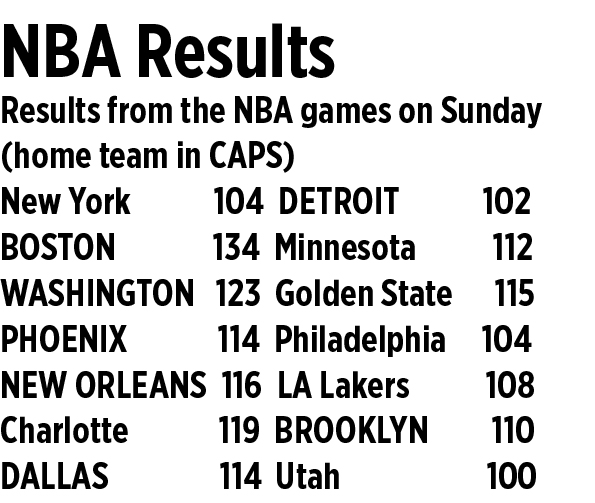 Jonas Valančiūnas added 19 points and 12 rebounds, CJ McCollum scored 18 and Herbert Jones, Jr. had 16 points and a season-high six steals for the Pelicans (32-43), who moved a half-game in front of the Lakers into ninth place in the Western Conference.
Jonas Valančiūnas added 19 points and 12 rebounds, CJ McCollum scored 18 and Herbert Jones, Jr. had 16 points and a season-high six steals for the Pelicans (32-43), who moved a half-game in front of the Lakers into ninth place in the Western Conference.

